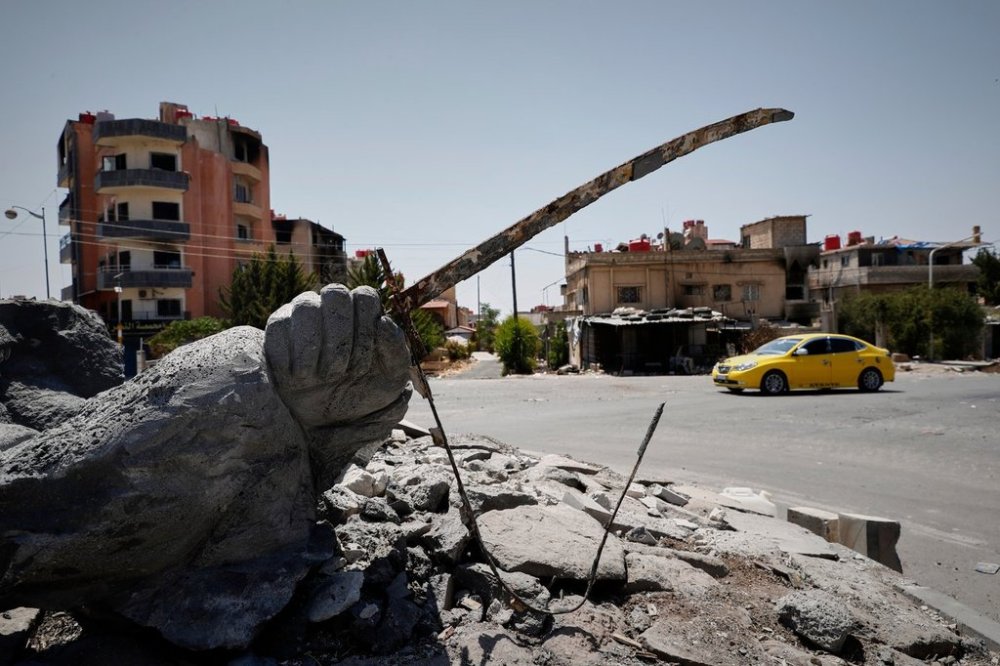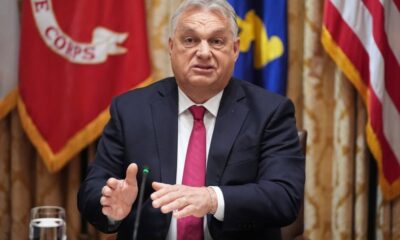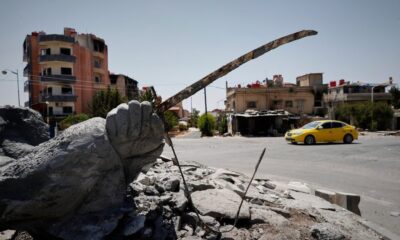World
Syrians and EU Officials Engage in Groundbreaking Dialogue in Damascus

Representatives from Syria’s civil society participated in significant discussions in Damascus on December 9, 2023. This meeting, attended by officials from the European Union and the transitional government, focused on pressing issues such as sectarian tensions, ethnic divisions, and the plight of individuals killed during the ongoing conflict.
The gathering, termed “The Day of Dialogue,” marks the first occasion that such discussions have taken place in Syria since prior meetings were held in Brussels. This event comes almost a year after the fall of the Assad family regime, a shift catalyzed by a coordinated offensive from insurgent groups that dismantled over five decades of authoritarian rule.
Dialogue as a Path to Reconciliation
Syria’s Foreign Minister, Asaad al-Shibani, emphasized the importance of these discussions in his opening remarks at a conference center located in the southern outskirts of Damascus. He noted that the meetings represent a “solid partnership with civil society and our partners in the European Union.”
The EU’s chargé d’affaires to Syria, Michael Ohnmacht, highlighted the participation of approximately 500 individuals from various religious and ethnic backgrounds. He expressed optimism for Syria’s future, stating, “This is what we hope for Syria’s future, to see this inclusive state which will be a state in the form of all its citizens.”
Despite the hope these discussions bring, the backdrop of sectarian violence remains a stark reality. Incidents in March and July saw clashes between pro-government forces and minority groups, such as the Druze and Alawites, resulting in hundreds of fatalities. The enduring violence underscores the significant challenges that Syria faces as it navigates the aftermath of a devastating 14-year conflict that has claimed around half a million lives.
Addressing Past Injustices
The dialogue sessions included discussions on transitional justice and the fates of the missing. Notably, participants raised concerns regarding over 130,000 individuals who have disappeared under the Assad regime, a haunting reminder of the unresolved issues stemming from years of oppression.
Participants also addressed the systemic discrimination experienced by ethnic Kurds and the violence faced by women from minority sects. Activist Mazen Darwish, who has faced imprisonment for his advocacy work, stated that while the fall of the Assad regime is a cause for relief, it does not guarantee a bright future for Syria. “Today we have an opportunity in Syria and we have to take advantage of it,” he remarked.
Social Affairs Minister Hind Kabawat asserted that today’s dialogue represents the beginning of essential change, advocating for a rebuilding process rooted in mutual respect between the state and civil society.
As these discussions unfold, the hope for a peaceful and inclusive Syria remains crucial. The engagement between civil society and international partners may pave the way for a more unified future, but the path is fraught with challenges that require persistent effort and commitment from all involved.
-

 Politics1 week ago
Politics1 week agoSecwepemc First Nation Seeks Aboriginal Title Over Kamloops Area
-

 World4 months ago
World4 months agoScientists Unearth Ancient Antarctic Ice to Unlock Climate Secrets
-

 Entertainment4 months ago
Entertainment4 months agoTrump and McCormick to Announce $70 Billion Energy Investments
-

 Lifestyle4 months ago
Lifestyle4 months agoTransLink Launches Food Truck Program to Boost Revenue in Vancouver
-

 Science4 months ago
Science4 months agoFour Astronauts Return to Earth After International Space Station Mission
-

 Technology3 months ago
Technology3 months agoApple Notes Enhances Functionality with Markdown Support in macOS 26
-

 Top Stories1 month ago
Top Stories1 month agoUrgent Update: Fatal Crash on Highway 99 Claims Life of Pitt Meadows Man
-

 Sports4 months ago
Sports4 months agoSearch Underway for Missing Hunter Amid Hokkaido Bear Emergency
-

 Politics3 months ago
Politics3 months agoUkrainian Tennis Star Elina Svitolina Faces Death Threats Online
-

 Politics4 months ago
Politics4 months agoCarney Engages First Nations Leaders at Development Law Summit
-

 Technology4 months ago
Technology4 months agoFrosthaven Launches Early Access on July 31, 2025
-

 Top Stories3 weeks ago
Top Stories3 weeks agoFamily Remembers Beverley Rowbotham 25 Years After Murder





















